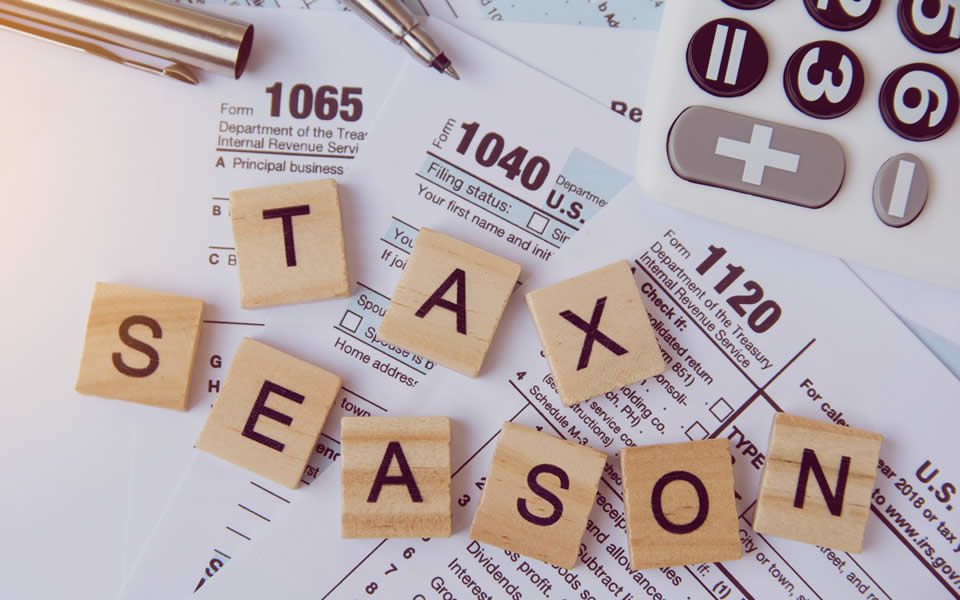Welcome to the topic Tax Season 2022: What You Need To Know.
It’s good to begin planning ahead for the upcoming tax season – getting a head start will help you to collect your required data beforehand so you can escape the rush and panic.
Read on to get details on everything you need to know for Tax Season 2022!
Tax Deductions and Tax Credits
Deductions and credits are the closest comparisons to miraculous considerations when it comes to taxes. Both, albeit in slightly different ways, let you retain your cash.
Tax deductions reduce the amount of your income that is subject to taxation. Some deductions are only accessible if you itemize, while others are obtainable even if you choose the standard deduction.
Tax credits, on the contrary, are monetary amounts deducted from your tax bill, and they come in two varieties: refundable and nonrefundable.
If you have a credit that is larger than the amount you owe and it is refundable, you will receive a refund for the difference.
If the credit is nonrefundable, your tax bill will be zeroed out, but you will not receive a refund. It’s still a victory!
Business Interruption Insurance Proceeds
Business interruption insurance is used to reimburse for income that would have been made and taxed if the business had not been interrupted. As a result, this compensation is usually taxed.
Taxed business interruption insurance payments, on the other hand, may be offset by tax-deductible business casualty losses to the extent that those losses haven’t already been covered by insurance.
To qualify for a deduction, the taxpayer has to be able to establish the loss and that it was caused by the incident that caused the business disruption.

Medical Deductions
If you had to pay a lot of medical bills last year, you might be eligible to get some tax relief.
All medical expenses that exceed 7.5 percent of your adjusted gross income (AGI), that is, your total income excluding any other deductions you’ve previously taken, can be deducted.
However, in order to deduct such expenses on your tax return, you must itemize your deductions.
Earned Income Tax Credit
The Earned Income Tax Credit (EITC) is a refundable credit meant to assist low- and middle-income families.
A single filer with no children has a maximum adjusted gross income of above $20k. In contrast, a married couple with three or more children has a maximum adjusted gross income of under $60k.
The credit might save you anything from a few hundred to a few thousand dollars on your taxes, depending on your income, filing status, and the number of children.
But here’s a startling statistic: nearly one-fifth of eligible taxpayers either don’t claim the benefit or don’t file a tax return at all.
Charitable Donations
Two charitable giving improvements made by the Coronavirus Aid, Relief, and Economic Security (CARES) Act were extended by the Taxpayer Certainty and Disaster Tax Relief Act of 2020.
If you want to itemize your deductions, the law permits you to deduct up to 100 percent of your adjusted gross income (AGI), which is your total income less any other deductions you’ve previously taken.
You can still benefit if you take the standard deduction. Non-itemizers, on the other hand, can take an above-the-line deduction of up to $300 – or $600 if married filing jointly – for cash charitable contributions.
Education Credit
The American Opportunity Tax Credit (AOTC) is a partly refundable credit for a student’s initial four years of college education fees.
You can claim up to $2,500 per pupil, and if the credit reduces your tax bill to zero, you will receive a 40% refund (up to $1,000).
The Lifetime Learning Credit (LLC) is a nonrefundable tax credit that reimburses up to $2,000 in eligible educational expenses per return.
While the AOTC can only be used for undergrad fees, the LLC can be used for a variety of educational expenses, including everything from degree programs to technical classes to enhancing employment skills.
However, keep in mind that you can claim both the AOTC and the LLC on your tax return, though not for the pupil or expenditures.
Self-Employment Deductions
If you’re self-employed, you can take advantage of a number of tax breaks, including travel expenditures and the home office deduction if you utilize a portion of your house for business.
However, because the home office deduction is only available to self-employed persons, you won’t be able to claim it if you’re one of the laborers who had been sent home to work remotely.

Child Tax Credit
The Child Tax Credit was increased from $2,000 to $3,600 for children under the age of six and to $3,000 for children aged six to seventeen under the American Rescue Plan, which was passed in March 2021.
Instead of having to wait until tax season to claim the benefit, the IRS began giving out a portion of it in advance monthly payments.
These payments are $300 per month for children under the age of six and $250 for children aged six to seventeen.
For persons with earnings of more than $150,000 if married filing jointly or $112,500 if filing as head of household, the Child Tax Credit is gradually phased out.
While receiving checks in the mail is pleasant, keep in mind that paying for the Child Tax Credit in advance can lessen the amount you receive at tax time.
Payments are based on your 2020 taxes, so if your income increased sufficiently in 2021 to push you closer to the credit’s phase-out level, you might want to forego early payments.
Casualty Losses
Taxpayers should keep track of any losses they have suffered as a result of either disaster – Hurricane Ida or Hurricane Nicholas – to see if they may claim the loss as an itemized deduction.
Stimulus Payment
The federal government gave a third stimulus payment to people who qualified in March of 2021. Notify your CPA if you received the stimulus money and how much it cost you.
In certain situations, taxpayers who did not meet the requirements for the stimulus on their 2020 tax return may be eligible on their 2021 tax return.
Have any questions regarding the topic Tax Season 2022: What You Need To Know? Feel Free to comment below.




